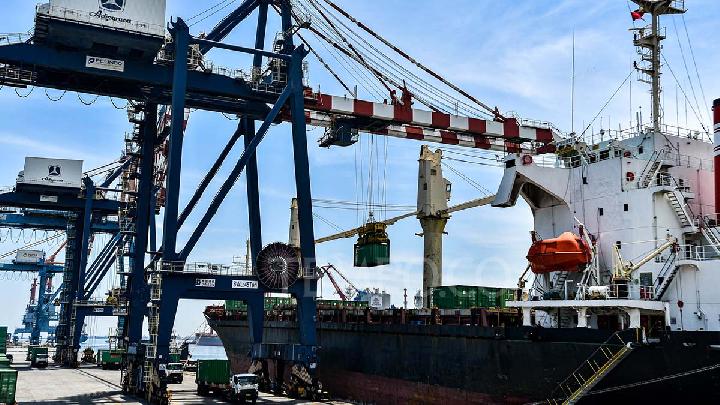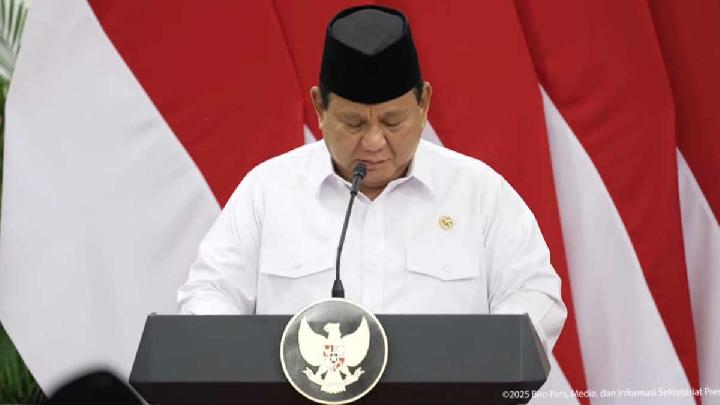
TEMPO.CO, Jakarta - The Statistics Indonesia (BPS) has stated that World Bank data indicating that 60.3 percent of Indonesia's population is classified as poor should be considered solely as a reference and not as a definitive measure for the country.
"Let's be wiser in interpreting and understanding the poverty figure issued by the World Bank. Therefore, applying them as a definitive measure is not necessary; they rather serve as a reference," said Acting Head of BPS Amalia Adininggar Widyasanti at the Jakarta Presidential Palace complex on Wednesday, April 30.
Amalia explained that the standard used by the World Bank in determining the figure is the poverty line for the upper middle-income country category, which is US$6.85 per capita based on purchasing power parity (PPP) in 2017.
Thus, she said, the figure cannot be directly converted using the current exchange rate because the calculation is based on PPP 2017.
Furthermore, BPS emphasized that the World Bank's poverty line is not universally applicable. Each country should establish a national poverty line tailored to its specific characteristics and conditions.
"Therefore, if we pay more attention to the details, in addition to the poverty line or the World Bank's standard poverty line, many countries have regional poverty lines calculated individually based on their unique circumstances and cost of living."
In Indonesia, Amalia continued, the poverty line is determined based on the conditions of each province, which has a different standard of living.
She clarified that the national poverty rate is calculated by aggregating the poverty rates of each province, which are determined by their respective living conditions.
Therefore, she stated, the standard of living in the capital city of Jakarta will not be the same as the standard of living in a province like South Papua.
"Jakarta Province and South Papua Province have different poverty lines," Amalia concluded.
Editor's Choice: Prabowo Says Rp30tn Sufficient to Address Absolute Poverty in Indonesia
Click here to get the latest news updates from Tempo on Google News
Growth Projection Cuts by IMF, World Bank Signal Economic Challenges for Indonesia
4 hari lalu

In its latest projections, the International Monetary Fund (IMF) forecasts Indonesia's economic growth at 4.7 percent in 2025, lower than in January.
Housing Deputy Minister: World Bank to Fund Uninhabitable Home Renovations in Indonesia
9 hari lalu

World Bank and several donor agencies will assist in funding the renovation program for uninhabitable houses in Indonesia.
BPS: Indonesia's March Trade Surplus Hits US$4.33 Billion as Positive Streak Continues
10 hari lalu

BPS reports that Indonesia's trade balance has experienced a surplus for 59 consecutive months
BPS Announces 1.65% Inflation in March; Driven by Electricity, Fuel Costs
23 hari lalu

The Central Statistics Agency (BPS) announced that year-on-year inflation for March 2025 was 1.03 percent.
World Bank Says Indonesia's Lost Tax Revenue Potential Due to Compliance Gap
34 hari lalu

In addition to non-compliance, lost tax revenue is caused by policy gaps.
World Bank: Indonesia's Tax Revenues Among the Worst in the World
34 hari lalu

Indonesia's tax revenue to gross domestic product (GDP) ratio is among the lowest in the world, standing at only 9.1 percent in 2021.
Prabowo Says Rp30tn Sufficient to Address Absolute Poverty in Indonesia
35 hari lalu

President Prabowo stated that Baznas has the potential to address extreme poverty by collecting Rp41 trillion of funds this year.
People's School to Use National Plus Plus Curriculum
57 hari lalu

The special curriculum at the People's School will still incorporate the existing national curriculum.
BPS: Indonesia Had Deflation of Two Consecutive Months in Early 2025
58 hari lalu

Deflation was recorded at 0.76 percent mtm in January 2025 and 0.48 percent mtm in February 2025. What are the BPS predictions for the month of Ramadan?
Sanken Indonesia Factory Closure: Impacts on Electronic Industry, Employment
24 Februari 2025

PT Sanken Indonesia will be closed down after nearly three decades in the electronic industry.












































